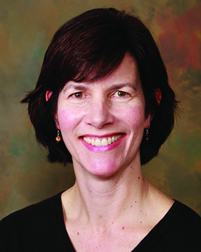Many of the health care needs and concerns of young lesbian, gay, bisexual, transgender and queer (LGBTQ) patients are particular to that group and must be addressed with knowledge of those concerns, as well as sensitivity and support.
That’s the topic of the Tuesday afternoon ARHP session Lesbian, Gay, Bisexual, Transgender and Queer: Conversations and Care. The session features presentations from an adolescent medicine physician and a pediatric rheumatology social worker who will discuss the special needs and issues of the young LGBTQ rheumatology patient and ways to make the office visit more successful.

“First of all, physicians need to be aware of the fact that sexual minority youth are not rare, by any means; however, they are rarely going to identify themselves,” said Barbara Snyder, MD, Chief of Adolescent Medicine and Clinical Associate Professor of Pediatrics at Rutgers Robert Wood Johnson Medical School. “When we’re talking to these patients, we often don’t realize how our questions are heard. These kids can be highly sensitive to some questions, and they are often very reluctant to discuss anything, because they’re worried about being judged and discriminated against.”
A 2011 Institute of Medicine report found sexual minority youth are at high risk for bullying, physical violence, sexual abuse, and rejection by peers and family. These adverse childhood experiences can lead to increased depression, anxiety, and posttraumatic stress, which can trigger maladaptive coping efforts.
“As physicians, it’s important that we are familiar with the things these kids may be dealing with and the things they are exposed to and how that can impact their illness,” Dr. Snyder said. “When we ask them the questions that we need to ask in order to provide care, we need to be sensitive and nonjudgmental, explaining to them why we’re asking those questions.”
Health care providers can play a significant role in lessening the stigma that LGBTQ people have historically experienced in health and mental health settings, said Caroline Hill, LCSW, a pediatric social worker in the Rheumatology Clinic at the UCSF Benioff Children’s Hospital in San Francisco.
“We are living in a very dynamic time for LGBTQ people in terms of social progress and legal reform,” Hill said. “Understanding the issues that affect these communities is necessary to providing culturally appropriate and sensitive medical care.”
UCSF is currently leading the first nationwide, longitudinal study of LGBTQ and other sexual gender minorities with the PRIDE (Population Research in Identity and Disparities for Equality) study via an iPhone mobile app. The goal of the study is to develop a better understanding of factors that influence the health of LGBTQ people and improve health disparities within these populations.
“Through education and training, pediatricians and adult providers can develop a practice that is sensitive to, respectful of, and welcoming to LGBTQ communities,” Hill said. “By increasing your comfort level and competence with these populations, you can promote better health outcomes for your patients.”
